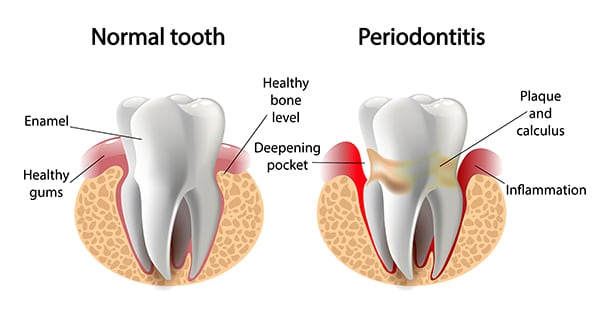Healthy gums play an important role in your smile appearance and oral function. When plaque builds up and bacteria begins to thrive, your gums can become inflamed and start to recede. Known as periodontal (gum) disease, this condition can not only take away from the look of your smile, but when left untreated, it can cause lasting damage to your dental health. Fortunately, with early intervention, you can prevent gum disease from affecting your health and oral function.




